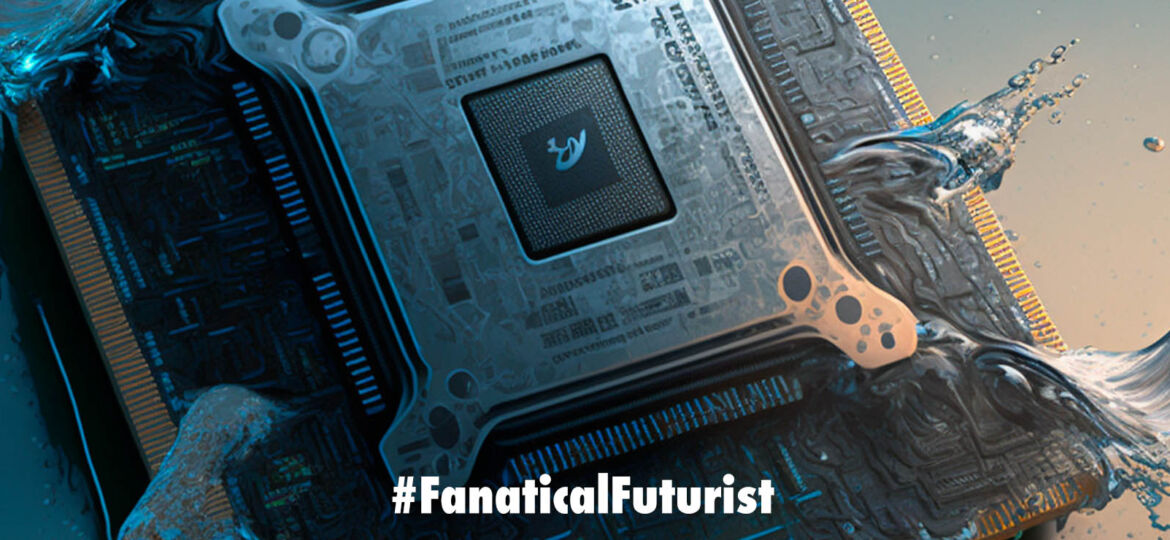
WHY THIS MATTERS IN BRIEF
Terahertz computing is a long held ambition for computing companies, and now this POC brings it in reach … eventually
 Love the Exponential Future? Join our XPotential Community, future proof yourself with courses from XPotential University, read about exponential tech and trends, connect, watch a keynote, or browse my blog.
Love the Exponential Future? Join our XPotential Community, future proof yourself with courses from XPotential University, read about exponential tech and trends, connect, watch a keynote, or browse my blog.
Water is usually something you’d want to keep away from electronic circuits, but engineers in Germany have now developed a new concept for water-based electronic switches that are much faster than current semiconductor materials.
Transistors are a fundamental component of electronic systems, and in a basic sense they process data by switching between conductive and non-conductive states – zeroes and ones – as the semiconductor materials in them encounter electrical currents. The speed of this switching, along with the number of transistors in a chip, is a primary factor in how fast a computer system can be.
Now, researchers at Ruhr University Bochum have developed a new type of circuit that can switch much faster than existing semiconductor materials. The key ingredient is, surprisingly, water, with iodide ions dissolved into it to make it salty. A custom-made nozzle fans this water out into a flattened jet only a few microns thick.
Next, a short but powerful laser pulse is fired into the water jet. This bumps electrons out of the dissolved salts, essentially boosting the conductivity of the water. A second laser can read back what state the water is in, providing the “on” and “off” options of an existing transistor.
Because the laser pulse is so fast, the water can switch states in a matter of picoseconds, which are trillionths of a second. This translates to potentially being able to develop Terahertz Computers – computer speeds in the terahertz (THz) range – that’s 1,000 GHz, which is far faster than any existing semiconductor can switch today.
Of course, this is just a concept at the moment, and exactly how water-based circuits could be practically scaled up remains to be seen, but it’s an intriguing idea nonetheless.
The research was published in the journal APL Photonics.
















